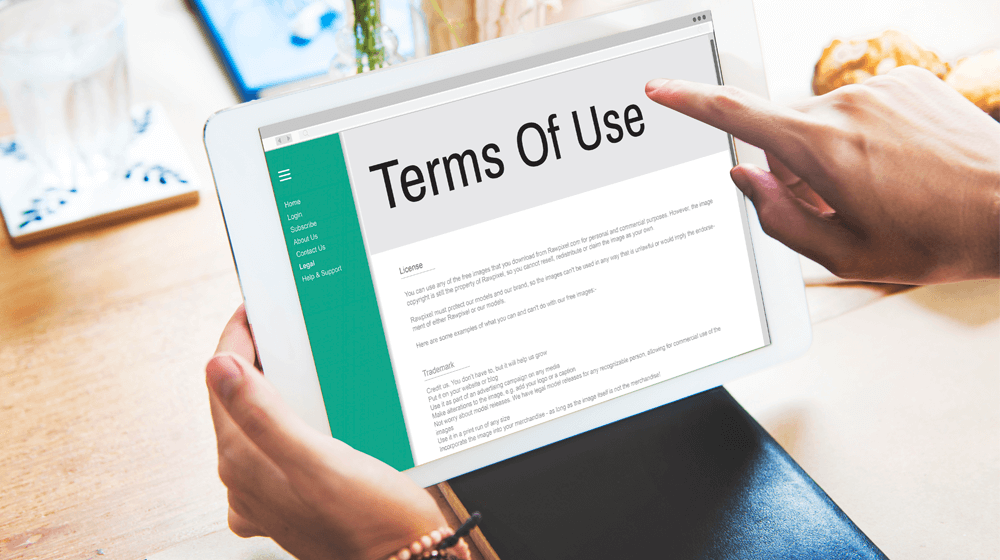Scope
Eligibility to List
In order to be eligible for listing on a business listing website, users must adhere to the terms of use outlined by the platform. These terms are designed to ensure that all listings are accurate, complete, and compliant with applicable laws and regulations.
The first step in determining eligibility is to review the website’s content guidelines. This will outline the types of businesses that are permitted to list on the site, as well as any restrictions or prohibitions on certain types of content.
Businesses must also meet the website’s eligibility criteria, which may include requirements such as having a physical presence or address, being registered with a specific governing body, or meeting minimum revenue thresholds.
In addition to these basic requirements, businesses may also need to provide additional documentation or information in order to verify their eligibility for listing. This could include proof of business registration, licenses and permits, or other relevant credentials.
Businesses that are found to be non-compliant with the website’s terms of use may face penalties, including being removed from the site, having their listings suspended or terminated, or even facing legal action in some cases.
It’s worth noting that eligibility criteria may vary depending on the specific business listing website and its target audience. For example, a website that focuses on local businesses may have more stringent requirements than a national or global platform.
Overall, the terms of use for a business listing website are in place to ensure that all listings are accurate, complete, and compliant with applicable laws and regulations.
Users who are unsure about their eligibility for listing can contact the website’s support team or review the website’s FAQs section to get more information.
Businesses and organizations can list on the website if they offer products or services, are legitimate businesses, and agree to abide by these Terms.
The Business Listing Website is a platform that allows various businesses and organizations to showcase their products and services, making it easier for customers to discover them. In order to list on this website, businesses must meet certain criteria, as outlined in the Terms of Use.
Eligibility Requirements
In general, any business or organization that offers legitimate products or services can create a listing on the website. This includes but is not limited to:
- Small and medium-sized enterprises (SMEs), such as sole proprietorships, partnerships, and private limited companies.
- Large corporations with multiple branches or subsidiaries.
- National and international businesses operating in various sectors.
- Non-profit organizations, charities, and social enterprises that provide goods or services.
Licensing and Certifications
Businesses must also ensure they have the necessary licenses and certifications to operate legally. For instance:
- Safety certifications, such as ISO 9001 for quality management or ISO 14001 for environmental management.
- Licenses and permits from government agencies, regulatory bodies, or trade associations.
Agreement to Terms of Use
Before creating a listing on the website, businesses must agree to abide by these Terms of Use. This involves:
- Maintaining accurate and up-to-date information about their products or services.
- Complying with applicable laws and regulations, such as consumer protection, tax laws, and employment laws.
- Respecting the website’s policies and guidelines on content, advertising, and user interactions.
By agreeing to these Terms of Use, businesses can benefit from increased visibility, credibility, and opportunities for growth, while also ensuring they maintain a professional online presence that aligns with their values and goals.
User Obligations
Providing Accurate Information
In providing accurate information on business listing websites, it is essential to understand the terms of use that govern user interactions. These terms typically outline the rules and guidelines for creating and managing listings, as well as the responsibilities of both the website operator and users.
The accuracy of information is critical in business listing websites, as incorrect or outdated details can lead to confusion among consumers and damage a business’s reputation. To ensure the provision of accurate information, users must be aware of their obligations when creating and editing listings.
Businesses should provide complete and up-to-date contact details, including address, phone number, and email address. It is also crucial for businesses to keep their hours of operation, services offered, and prices current to ensure accuracy.
In addition to the accuracy of business information, users must also be aware of the website’s content policies. This may include restrictions on profanity, personal attacks, or other forms of abusive language that can harm others or damage the website’s reputation.
Users are often required to agree to terms of use before creating a listing, and these agreements typically outline their responsibilities as users. For instance, users may be prohibited from duplicating content across multiple listings or posting the same information on other websites.
The terms of use also usually address how users can modify or delete their own listings, as well as what happens to user-generated content upon deletion. Users should understand that even after a listing is deleted, the website operator may retain some information for technical purposes or for compliance with applicable laws.
Website operators typically have the right to remove or edit listings that do not meet the terms of use. This decision can be made at any time and without notice to the user. Users should understand that removal of their listing does not affect other agreements they may have with the website operator, such as those related to advertising or sponsored content.
In addition to the terms of use, business listing websites often include a privacy policy that outlines how user data is collected, stored, and shared. This information can be critical for users who want to ensure their personal and business information remains confidential.
Businesses should also note that providing inaccurate or misleading information on business listing websites may result in penalties, fines, or even legal action under applicable laws.
The terms of use can vary significantly between different business listing websites, and it is essential for users to review the specific terms of each website before creating a listing. Understanding these terms helps ensure that businesses provide accurate information and comply with the rules set by the website operator.
Businesses should regularly check their listings on various platforms to update any inaccuracies or outdated information. By doing so, they can maintain a positive image and reputation among potential customers.
Users must provide accurate, complete, and uptodate information when creating a listing. This includes business details, contact information, and any other required fields.
When creating a listing on the Business Listing Website, users must provide accurate, complete, and up-to-date information. This requirement is crucial for several reasons:
Firstly, providing accurate business details enables potential customers to find and contact businesses that meet their needs. Inaccurate or outdated information can lead to confusion and mistrust among customers, ultimately affecting the success of a business.
Secondly, complete and up-to-date contact information is essential for businesses to receive inquiries and orders from customers. Missing or incorrect contact details can result in missed opportunities and lost revenue for businesses.
The Business Listing Website Terms of Use emphasize the importance of providing accurate, complete, and up-to-date information when creating a listing. Users are expected to ensure that all required fields are filled out correctly, including
- Business name and address
- Contact email and phone number
- Business category and description
- Opening hours and availability
- And any other relevant details
Users must also keep their listings up to date by regularly reviewing and updating their information. This includes changes to business details, contact information, or operating hours.
Failing to provide accurate, complete, and up-to-date information may result in penalties or even removal of the listing from the Business Listing Website. Users who repeatedly fail to comply with this requirement may face suspension or termination of their account.
It is essential for users to understand that providing accurate, complete, and up-to-date information is a critical aspect of creating an effective listing on the Business Listing Website. By following these guidelines, businesses can ensure that they are visible to potential customers and increase their chances of success in the market.
Licenses and Permissions
Right to Use Content
The Right to Use Content Business Listing Website Terms of Use are an agreement between the user and the website’s owner, outlining the rules for accessing and using the platform.
User is any individual or business that uses the website, including but not limited to, those who create listings, browse listings, and interact with other users.
Content, in this context, refers to all text, images, videos, and other materials published on the website by users or administrators.
The terms of use establish the guidelines for user behavior, content creation, and platform usage. Users are expected to comply with these terms at all times while using the website.
Right to Use Content implies that users have permission to access, view, and utilize the available content on the website in accordance with the terms of use.
The terms of use may be updated by the website’s owner at any time without prior notice. Users are responsible for regularly reviewing these updates and adhering to new or modified rules.
Liability is explicitly disclaimed by the website’s owner, except in cases where damages occur due to gross negligence or willful misconduct on their part.
User-generated content may be subject to moderation and deletion by the website’s administrators. Users are not entitled to any compensation for content removal.
The terms of use are governed by the laws of the relevant jurisdiction, with all disputes arising from their interpretation or breach being resolved through arbitration under the auspices of a recognized international organization.
Copyrights and intellectual property rights in the content published on the website remain vested in their respective owners. Users may not reproduce, distribute, or display content without permission from the rightful owner(s).
By accessing or using the Right to Use Content Business Listing Website, users acknowledge that they have read, understood, and agreed to abide by these terms of use. Failure to comply with these terms may result in account suspension, termination, or other measures deemed necessary by the website’s owner.
Disputes arising from the interpretation or enforcement of these terms of use shall be resolved through binding arbitration under the rules and guidelines set forth by the relevant international organization.
The website may include content licensed from third parties. Users do not have the right to reproduce or modify this content without permission from its owner.
The website’s terms of use emphasize that it may incorporate content licensed from external parties. This third-party content is subject to specific usage restrictions, which users must respect.
The license agreements governing these contents impose limitations on their reproduction and modification. Users are not permitted to reproduce or modify the third-party content without first obtaining permission from its rightful owner.
This policy aims to protect the intellectual property rights of the content creators and prevent unauthorized use of their work. By using the website, users implicitly agree to abide by these terms and conditions regarding third-party content.
Business Listing Websites often include a wide range of content contributed by various sources, including businesses listed on the site, partners, and external contributors. This diverse content can encompass text, images, videos, and other forms of media.
The inclusion of this third-party content enhances the overall user experience, providing a more comprehensive and informative platform for business listings and related services. However, it also necessitates adherence to licensing agreements that govern its use.
Users who reproduce or modify third-party content without permission may infringe on the rights of the content owners, potentially leading to legal consequences. Therefore, it’s essential for users to carefully review and respect these usage restrictions when interacting with the website’s content.
The terms of use serve as a contractual agreement between the user and the website operator, outlining the permitted and prohibited uses of the site’s content. By acknowledging and respecting these terms, users can ensure a positive experience on the platform while also upholding the rights of third-party content creators.
Intellectual Property
Copyright Notice
Copyright Notice: All content on this website is protected under international copyright laws. The reproduction, modification, distribution, transmission, republication or display of the contents of this website are strictly prohibited without our prior written permission.
Business Listing Website Terms of Use: By using this website, you agree to be bound by these terms and conditions of use (“Terms”). We reserve the right to modify these Terms at any time, so please review them regularly. Your continued use of this website will be deemed acceptance of any changes.
Use of the Website: You may access, view, download and print the content of our website only for personal non-commercial purposes. You are not authorized to link directly to our server or to frame our website without our prior written consent.
Registration: Some services on our website require registration or subscription, which will be governed by these Terms as well as a separate agreement. When registering with us, you agree to provide accurate and complete information about yourself as prompted by the applicable registration form(s). You are responsible for maintaining the confidentiality of your account credentials and for all activities that occur under your account.
Licenses and Subscriptions: Licenses and subscriptions granted to you will be non-exclusive, non-transferable and subject to our payment terms. We reserve the right to modify or cancel any license or subscription at any time, with or without cause, and with or without notice.
Content Ownership: All content on this website is owned by us or used under license from third-party owners. You do not acquire ownership rights in our content or any other intellectual property through your use of this website or its services.
Indemnification: You agree to indemnify, defend and hold harmless us, and our directors, officers, employees, agents, contractors and affiliates (collectively “indemnitees”) from and against any third-party claims, demands, actions, proceedings, losses, damages, fines, penalties and costs of any kind arising out of or related to your use of this website.
Limitation on Liability: IN NO EVENT WILL WE OR ANY OF OUR INDEMNITEES BE LIABLE TO YOU FOR ANY INDIRECT, SPECIAL, INCIDENTAL, PUNITIVE, EXEMPLARY OR CONSEQUENTIAL DAMAGES ARISING OUT OF OR RELATED TO THIS AGREEMENT, INCLUDING WITHOUT LIMITATION LOSS OF USE, BUSINESS INTERRUPTIONS, LOSS OF PROFITS OR OTHER ECONOMIC LOSS.
Disclaimer: EXCEPT AS EXPRESSLY PROVIDED HEREIN, OUR WEBSITE AND ALL CONTENT ARE PROVIDED “AS IS” WITHOUT WARRANTY OF ANY KIND, EITHER EXPRESS OR IMPLIED. WE DISCLAIM ALL WARRANTIES, INCLUDING BUT NOT LIMITED TO THE IMPLIED WARRANTIES OF MERCHANTABILITY, FITNESS FOR A PARTICULAR PURPOSE, TITLE AND NON-INFRINGEMENT.
Governing Law and Jurisdiction: These Terms will be governed by and construed in accordance with the laws of [State/Country]. Any dispute arising out of or related to these Terms shall be resolved through arbitration in accordance with the rules of [Arbitration Association] or in a court of competent jurisdiction located in [City], [State/Country].
Notices: You agree that any notices, demands or other communications provided by us under this Agreement will be made to you via electronic mail or on our website. Your continued use of the website after we post changes to these Terms and conditions will constitute your acceptance of such changes.
All intellectual property rights on the website belong to their respective owners, including trademarks, copyrights, and trade secrets.
All intellectual property rights on this website belong to their respective owners.
This includes:
Copyrights: All original content, including text, images, graphics, and videos, is protected by copyright law. Reproduction, modification, distribution, or republication of the content without permission from the respective owner is strictly prohibited.
Trademarks: The website may display logos, trademarks, and service marks owned by various companies and individuals. These trademarks are used solely for informational purposes and in no way imply affiliation with or endorsement by the trademark owners.
Trade secrets: Business listing website may use trade secret information provided by businesses and individuals to create listings on the platform. This information is confidential and protected by law, and unauthorized disclosure or misuse of such information is strictly prohibited.
The terms “owner” and “respective owners” refer to any individual or organization that holds intellectual property rights, including but not limited to:
Businesses: Companies listed on the website retain all intellectual property rights to their content, logos, trademarks, and trade secrets.
Individuals:
- Authors, artists, designers, photographers, and other creatives who contribute original work to the website
- Entrepreneurs, inventors, and researchers whose intellectual property rights are protected by law
The Business Listing Website reserves the right to remove or restrict access to any content that infringes on the intellectual property rights of its owners.
User-generated content may also be subject to additional terms and conditions, which will be clearly outlined in the website’s community guidelines or terms of use.
Use of Content
Permitted Use
The terms of use for permitted use business listing websites outline the guidelines and rules that govern the use of these online directories. These terms are typically outlined in a contract between the website owner and the business listing its information on the site.
Permitted Use:
- This section outlines what users can do with the information listed on the website, such as reproducing it for personal or commercial use.
- It may specify how much of the data can be used, e.g. a certain number of records or pages.
Prohibited Use:
- This section outlines what users cannot do with the information listed on the website, such as selling or distributing it to third parties.
- It may also specify actions that could potentially harm the website or its users, such as scraping or hacking.
Licenses and Intellectual Property:
- This section outlines the ownership and usage rights of intellectual property, such as trademarks and copyrights, associated with the website and its data.
- It may specify how much of the content can be used by users and under what conditions.
Limitation of Liability:
- This section outlines the website’s liability in case of errors, inaccuracies, or omissions on its database.
- It may specify that users are solely responsible for verifying information before using it and disclaim any implied warranties or representations.
Indemnification:
- This section outlines the obligation of users to compensate the website owner in case of losses resulting from their actions, such as copyright infringement or violation of terms of use.
- It may specify that the user will be responsible for any and all claims arising from their actions on the website.
Termination:
- This section outlines how the agreement can be terminated, including in case of breach or expiration.
- It may specify a notice period before termination takes effect.
Amendments:
- This section outlines how terms and conditions can change over time and when they will take effect.
- It may specify that changes to the terms of use are binding on users once posted or notified via email.
Dispute Resolution:
- This section outlines the procedures for resolving disputes related to the interpretation, enforcement or validity of the agreement.
- It may specify a jurisdiction for dispute resolution, arbitration rules, and potential mediator.
These are just some of the key areas that are typically included in the terms of use for permitted use business listing websites. It is essential for users to carefully review these terms before using or reproducing data from such platforms to avoid any potential legal issues.
Users may view, print, or download content from the website for personal use only. They must not modify or distribute this content without permission.
The User Agreement for a Business Listing Website outlines the terms and conditions under which users may access, view, print, or download content from the website.
This agreement specifically states that users are permitted to use the content on the website for personal use only. Personal use is defined as viewing, printing, or downloading content for non-commercial purposes, such as research, educational, or informational purposes.
However, it’s essential to note that users may not modify or distribute this content without permission from the website administrators or copyright holders. This means that users are not allowed to alter, reproduce, republish, sell, or disseminate any of the content on the website, including but not limited to text, images, graphics, videos, and audio files.
Additionally, users may not use the content for any commercial purpose, such as selling it, licensing it, or incorporating it into other works without prior written permission from the copyright holders. This includes, but is not limited to, using the content in advertisements, marketing materials, or other promotional activities.
The website’s administrators and copyright holders retain all rights, title, and interest in and to the content on the website, including but not limited to trademarks, copyrights, trade secrets, and patents. Users acknowledge that they do not acquire any ownership or intellectual property rights by accessing, viewing, printing, or downloading this content.
Furthermore, users agree to hold harmless the website administrators, copyright holders, and their affiliates, officers, directors, employees, agents, successors, and assigns from any claims, damages, or liabilities arising from their use of the website’s content. This includes, but is not limited to, claims for infringement of intellectual property rights, breach of contract, or tortious conduct.
By accessing, viewing, printing, or downloading the content on this website, users agree to be bound by these Terms of Use and acknowledge that they have read, understood, and will comply with them. Users who do not agree to these terms are prohibited from using the website’s content and may be subject to penalties, fines, or other legal consequences.
The Business Listing Website reserves the right to modify or update its Terms of Use at any time without prior notice. It is essential for users to regularly review these Terms of Use to ensure that they understand their obligations and responsibilities when accessing, viewing, printing, or downloading content from the website.
Consequences of Non-Compliance
Loss of Listing
When a business listing is removed or suspended from a website, it can have significant consequences for the business owner. This is known as a Loss of Listing.
A Loss of Listing typically occurs when a business fails to meet the Terms of Use set by the website, which outline the rules and guidelines for listing and maintaining a business on the site. These Terms of Use can include requirements such as payment of fees, provision of accurate contact information, and adherence to specific content standards.
Some common reasons why a business may lose its listing on a website include:
- Failing to pay required fines or subscription fees on time;
- Providing false or misleading information about the business, such as incorrect contact details or fake reviews;
- Violating content standards by posting explicit or discriminatory material;
- Failing to keep the listing up-to-date and current.
If a business is found to have lost its listing due to non-compliance with the Terms of Use, it may be suspended from the website until such time as the issues are resolved. In some cases, this can result in a permanent loss of listing.
In order to avoid a Loss of Listing, business owners should carefully review and adhere to the Terms of Use set by the website, ensuring that they meet all the requirements and guidelines for maintaining an active and valid business listing.
Businesses can also take steps to mitigate the risk of losing their listing by regularly reviewing and updating their information on the website, responding promptly to any inquiries or notifications from the website administrators, and staying informed about any changes to the Terms of Use.
If a user fails to comply with these Terms, the website may remove their listing and suspend or terminate their account.
If a user fails to comply with these Terms, the website may remove their listing and suspend or terminate their account. This could be for a variety of reasons, such as violating community guidelines, engaging in spamming or abusive behavior, or failing to provide accurate or complete information.
The specific actions that trigger this response will depend on the severity of the infraction. For example, if a user posts spammy content multiple times, the website may issue a warning before taking more drastic action. However, if a user engages in serious misconduct, such as violating copyright laws or posting explicit material, their account may be suspended or terminated immediately.
In some cases, the website may choose to temporarily suspend a user’s account rather than permanently terminating it. This can give the user an opportunity to rectify any issues and prevent further infractions from occurring. However, if the problem persists after the suspension period has expired, the website reserves the right to terminate the account.
Users who have their accounts terminated may be banned from accessing certain features or services on the website. Additionally, the website may choose to remove all content associated with the terminated user, including listings and reviews. In some cases, the website may also retain any data associated with the terminated user for compliance or security purposes.
The decision to suspend or terminate an account will be made at the sole discretion of the website. The website may revise its policies at any time without notice, and users are responsible for familiarizing themselves with these Terms and complying with them accordingly.
Indemnification
Liability Protection
The liability protection business listing website terms of use outline the rules and regulations that govern users’ interaction with the platform.
By accessing or using the website, users agree to be bound by these terms of use, which may change from time to time without prior notice.
Users are expected to read and understand these terms of use before registering for an account on the website or listing their business.
The liability protection business listing website reserves the right to modify or discontinue any aspect of its services, including but not limited to the website’s features, functionality, or content without prior notice.
Users are solely responsible for maintaining the accuracy and completeness of their business listings, including but not limited to contact information, business hours, and product/services offered.
The liability protection business listing website may use third-party services to verify and validate user-supplied information, and users agree to cooperate with such verification and validation processes.
Users are prohibited from listing businesses that engage in or promote any unlawful or illegal activities, including but not limited to intellectual property infringement, defamation, or hate speech.
The liability protection business listing website reserves the right to remove or disable access to any listings that violate these terms of use, and may take steps to prevent further violations.
Users agree to indemnify and hold harmless the liability protection business listing website, its affiliates, officers, directors, employees, agents, and suppliers from any claims, damages, losses, liabilities, costs, or expenses arising out of their breach of these terms of use or their misuse of the website’s services.
The liability protection business listing website is not responsible for any errors, omissions, inaccuracies, or misstatements in user-supplied information, and users agree to hold harmless the liability protection business listing website from any claims arising out of such errors, omissions, inaccuracies, or misstatements.
Users are responsible for complying with all applicable laws, regulations, and international treaties, including but not limited to those related to intellectual property, data protection, and consumer protection.
The liability protection business listing website may share user information with third-party services, including but not limited to payment processors, analytics providers, and law enforcement agencies, as required by law or to prevent harm to the website’s users or itself.
Users agree that their use of the website is governed by these terms of use, and that any disputes arising out of or related to these terms of use shall be resolved through binding arbitration in accordance with the rules of the American Arbitration Association.
The liability protection business listing website reserves all rights not expressly granted in these terms of use, including but not limited to intellectual property rights and trade secret rights.
Users agree to indemnify and hold harmless the website, its owners, officers, employees, agents, and affiliates against any claims, damages, losses, liabilities, costs, and expenses arising from user’s use of the website.
The Users agree to indemnify and hold harmless the website, its owners, officers, employees, agents, and affiliates against any claims, damages, losses, liabilities, costs, and expenses arising from user’s use of the website. This includes but is not limited to:
Any content that users submit or upload to the website, such as business listings or reviews.
Any interactions between users on the website, including but not limited to disputes or conflicts.
Any third-party claims arising from user’s use of the website, such as intellectual property infringement or defamation.
The Users agree to defend and indemnify the website and its affiliates at their own expense, using counsel reasonably satisfactory to the website. The Users will also promptly notify the website in writing of any claim or demand for which recovery may be sought.
In the event that any action is brought by a third-party against the website as a result of user’s use of the website, the users agree to cooperate fully with the website in defending such action and shall not settle or compromise any such claim without the prior written consent of the website.
The Users also agree to indemnify and hold harmless the website from and against any claims, damages, losses, liabilities, costs, and expenses arising out of user’s breach of these Terms of Use. This includes but is not limited to:
Any failure by users to comply with applicable laws or regulations.
Any misuse of the website or its services.
Any unauthorized use of the website’s intellectual property or trade secrets.
The Users’ agreement to indemnify and hold harmless the website is in addition to any other rights or remedies that the website may have against user. The website reserves the right to assume the exclusive defense and control of any matter for which user has agreed to indemnify the website, and user agrees to cooperate with the website’s defense of such claims.
This agreement shall survive termination of these Terms of Use. The Users’ obligation to indemnify and hold harmless the website is a material part of these Terms of Use, and the Users agree that this is a reasonable provision in light of the risks and uncertainties of user’s use of the website.
Governing Law and Jurisdiction
Jurisdiction and Venue
The concept of jurisdiction and venue plays a significant role in the context of business listing websites. These platforms provide an online space for businesses to create listings that are accessible to customers or clients. When it comes to disputes or issues arising from these listings, understanding jurisdiction and venue is crucial.
Jurisdiction refers to the authority of a court or legal body to hear and decide on cases. In the context of business listing websites, jurisdiction would typically be determined by the laws of the country, state, or region in which the website is based or operates. This means that if a dispute arises between two parties involved in a listing on the website, the court with jurisdiction would be the one with authority over the relevant legal issues.
On the other hand, venue refers to the geographical location where a case will be heard and decided. Venue can often determine which court has jurisdiction, but it also determines where the actual trial or hearing will take place. In online business listing scenarios, venue might refer to either the physical location of the website’s servers or the headquarters of the company operating the platform.
When navigating terms of use for business listing websites, key phrases related to jurisdiction and venue may include:
– “Jurisdiction” or “governing law”: This usually specifies that all legal disputes arising from use of the website will be subject to laws in a particular country, state, or region.
– “Venue”: This might specify the geographical location where any legal action related to the listing platform must be heard.
– “Forum selection clause”: Some terms may explicitly indicate that only courts with jurisdiction in specific locations (usually where the website operator is based) can hear disputes involving the listings.
– “Arbitration and mediation”: Certain platforms might include clauses for resolving disputes through alternative dispute resolution methods, such as arbitration or mediation, often with specific rules regarding jurisdiction and venue.
Understanding these legal concepts when signing up on a business listing website is essential. Ignorance of the terms of use could lead to misunderstandings down the line if issues arise related to your listing or interactions with other users.
Businesses should carefully read through the terms of use before creating listings and understand how jurisdiction and venue apply in their specific case. This proactive approach can help avoid potential legal complications in the future, especially when operating across multiple jurisdictions.
The clarity and specificity of these clauses are critical to maintaining a fair and legally sound business listing environment on online platforms. It’s crucial that both website operators and users familiarize themselves with these legal nuances to ensure compliance and smooth operation within the platform’s framework.
These Terms shall be governed by and construed in accordance with the laws of Japan. Any disputes arising out of these Terms shall be resolved through A dispute resolution process is a systematic approach to addressing and resolving conflicts or disagreements between parties in a fair and efficient manner. This process typically involves several stages:
- Identification of Dispute: The conflict or issue is identified and clearly defined.
- Gathering Information: Relevant facts, evidence, and statements are collected from all parties involved.
- Communication: Open and respectful communication takes place among the parties to understand each other’s perspectives and needs.
- Mediation or Negotiation: A neutral third party (mediator) facilitates discussions between the parties to find a mutually acceptable
- solution. This can also involve direct negotiation between the parties themselves.
- Analysis of Alternatives: The parties consider various options for resolution, such as compromise, settlement, or further action.
- Agreement and Implementation: A final agreement is reached, and steps are taken to implement it.
Monitoring and Review: The outcome is monitored, and the dispute resolution process may be reviewed if necessary.
Key principles of effective dispute resolution include:
Neutrality: Ensuring impartiality throughout the process.
Transparency: Clearly defining roles, procedures, and expectations for all parties.
Active Listening: Encouraging respectful communication to fully understand each party’s perspective.
Collaboration: Facilitating cooperation towards a mutually beneficial solution.
This systematic approach aims to resolve disputes in a fair, timely, and cost-effective manner, minimizing the risk of escalation or harm to any of the involved parties..
These Terms shall be governed by and construed in accordance with the laws of the state of New York. This means that all matters related to these Terms, including but not limited to their interpretation, validity, performance, and enforcement, will be determined by the courts and tribunals located within the state of New York.
The laws of the state of New York will apply to all disputes arising out of or in connection with these Terms. This includes any claims, actions, or proceedings that may arise from or relate to the use of the Website, the Services, or any other aspect of this Agreement.
By agreeing to these Terms, parties acknowledge that they have voluntarily submitted to the jurisdiction of the courts and tribunals located within the state of New York for all purposes related to the interpretation, enforcement, and any disputes arising from or in connection with these Terms. This includes without limitation, specific performance, injunctive relief, and any other equitable remedies.
In accordance with the laws of the state of New York, any dispute, claim, or controversy arising out of or in relation to these Terms, including but not limited to their validity, construction, interpretation, performance, enforcement, termination, and breach, will be resolved by arbitration administered by a recognized arbitration institution in New York. The parties agree that all such disputes, claims, or controversies will be governed solely by the rules of the chosen arbitration institution, and under no circumstances will any dispute, claim, or controversy be brought to court.
The parties also acknowledge that they have been advised to consult with their own lawyers and other professionals before entering into these Terms. By agreeing to them, each party agrees that it has had full and adequate opportunity to review, understand, and negotiate the terms of this Agreement, including but not limited to any limitations on liability contained herein.
These Terms shall be governed by and construed in accordance with the laws of the state of New York.. Any disputes arising out of these Terms shall be resolved through A dispute resolution process involves a series of steps aimed at resolving disagreements or conflicts between individuals, parties, or organizations in a fair and peaceful manner. The main goals of this process are to prevent escalations, resolve issues amicably, and maintain relationships.
Typical stages involved in the dispute resolution process include
- Identifying the issue: Clearly defining the problem at hand, its root causes, and all relevant parties involved.
Communicating openly: Ensuring open communication channels for both sides to express their concerns and needs without fear of judgment or retribution. - Mediation: Bringing in a neutral third party, mediator, to facilitate discussions and negotiations between the parties involved. This often involves active listening, clarification of points of disagreement, and creative problem-solving.
- Negotiation: The process of reaching a mutually acceptable agreement through give-and-take discussions, where each side presents its needs, wants, and limits to find common ground.
- Compromise: If negotiation does not lead to an immediate resolution, parties may need to reach a compromise that partially satisfies both sides’ interests. Compromises can be reached through direct discussion or the mediation of the third party
- Finding a solution: Reaching a mutually acceptable agreement is the ultimate goal. Solutions might involve changes in behavior, new policies, apologies, restitution, or other forms of resolution.
- Implementation and monitoring: Agreeing on how to implement the agreed-upon resolution and monitoring its effectiveness over time.
- The dispute resolution process encourages active listening, empathy, creativity, and a willingness to understand each side’s perspective.. Business Listing Website Terms of Use in language English wrap each line of your response in
Changes to Terms
Revision History
The Revision History feature on a business listing website allows administrators to track changes made to listings over time, enabling more efficient monitoring and management. This feature can be particularly useful for large organizations with numerous locations.
Bullet points illustrating the benefits of the Revision History feature include:
- Improved tracking and accountability: With a clear audit trail, administrators can identify who made changes, when they were made, and what was changed.
- Enhanced data integrity: By maintaining an accurate record of changes, Revision History helps prevent errors or unauthorized modifications.
- Better collaboration: Revision History facilitates communication among team members by providing a transparent view of the changes made to listings.
- Compliance with regulatory requirements: Businesses must maintain records of changes made to their data, and Revision History helps ensure this compliance.
The Terms of Use for a business listing website should clearly outline how Revision History works. Key points to consider include
- Access to Revision History: Specify which users have access to the feature, such as administrators or specific user roles.
- Retention of revision history: Explain how long revision histories are retained and what happens when they reach their maximum age limit (e.g., automatic deletion).
- Data visibility: Describe what data is recorded in the Revision History, such as user activity, changes made to listings, or other relevant information.
- Revision history export: Provide instructions on how users can export revision history data for reporting or auditing purposes.
By incorporating a well-documented and accessible Revision History feature into a business listing website, organizations can improve transparency, accountability, and compliance with regulatory requirements.
The website may revise these Terms at any time. Users agree to review these Terms regularly and to comply with any changes.
The website may revise the Terms at any time, and such revisions shall be effective immediately upon being posted on the website.
Users are required to regularly review these Terms and agree to comply with any changes made by the website.
This provision is designed to ensure that users are aware of any modifications to the Terms and can adapt their usage of the website accordingly.
In other words, users must keep themselves informed about any updates or revisions to the Terms, which may impact their rights and obligations as users of the website.
The website reserves the right to make changes to the Terms at its sole discretion, without prior notice or warning to users.
Users are expected to check the website regularly for any updates or revisions to the Terms, as well as other policies and guidelines that may be applicable to their use of the website.
By continuing to use the website after the posting of changes to these Terms, users acknowledge and agree to comply with such modifications, which shall become effective immediately upon being posted on the website.
This requirement for users to regularly review and comply with changes to the Terms is essential to ensuring that users have a clear understanding of their obligations and rights when using the website.
As such, it is crucial that users remain vigilant and informed about any updates or revisions to these Terms, in order to ensure a smooth and uninterrupted use of the website.
Contact Us
Support Information
The terms of use for the support information business listing website are as follows:
Scope of Agreement
This agreement governs the use of the Support Information Business Listing Website (“the Website”) by its users (“Users”). By accessing, viewing, browsing, or registering with the Website, Users acknowledge that they have read, understood, and agreed to be bound by these terms.
Definitions
- Support Information Business Listing Website: a website provided by [Company Name] that allows support information businesses to create business listings.
- User: any individual or organization using the Website, whether as a registered user, visitor, or customer.
- Content: all text, images, videos, audio files, and other materials uploaded or posted by Users to the Website.
User Responsibilities
Users are responsible for:
- Maintaining the confidentiality and security of their login credentials and account information.
- Complying with these Terms of Use, all applicable laws, and any additional terms or conditions imposed by [Company Name] from time to time.
- Using the Website only for lawful purposes and in a manner that does not infringe on the rights of other Users or third parties.
Content Guidelines
The following content is prohibited:
- Obscene, defamatory, harassing, threatening, or hateful materials.
- Materials that infringe on the rights of others, including copyrights, trademarks, or trade secrets.
- Spam, phishing, viruses, malware, or other forms of malicious code.
Intellectual Property Rights
[Company Name] owns and retains all intellectual property rights to the Website, including its design, layout, content, and software. Users do not acquire any ownership or license rights by using the Website.
Disclaimers
- The Website is provided on an “as-is” basis without any warranties of any kind, whether express or implied.
- [Company Name] disclaims all liability for damages resulting from use of the Website, including but not limited to loss of data, business interruption, and consequential damages.
Indemnification
Users agree to indemnify and hold [Company Name], its officers, directors, employees, agents, and affiliates harmless from any claims, demands, losses, liabilities, costs, and expenses arising out of or related to User’s use of the Website.
Acknowledgement
By using the Support Information Business Listing Website, Users acknowledge that they have read, understood, and agree to be bound by these Terms of Use. If a User does not agree with any term or condition, they should immediately stop using the Website.
Governing Law
These Terms of Use shall be governed by and construed in accordance with the laws of [State/Country]. Any disputes arising out of or related to these Terms of Use will be resolved through binding arbitration in accordance with the rules of the American Arbitration Association.
Contact Information
For any questions or concerns about the Support Information Business Listing Website, please contact [Company Name] at [support email address].
Users can contact the website through [email protected] or 555-1234 for support or to report any issues with the website.
Users can contact the website through various channels to report any issues, ask questions, or provide feedback on their experience. The most common method of contacting the website is through its designated email address.
Typically, this email address is prominently displayed at the bottom of every webpage or in a dedicated “Contact Us” section. By clicking on the email link or copying and pasting the address into their email client, users can easily send an email to the website’s administrators or support team. This method allows users to communicate with the website in a written format, which is helpful for issues that require documentation or follow-up.
Another way users can contact the website is through its phone number. The phone number may be displayed on the same page as the email address or in a separate section of the website. Users can call this number during business hours to speak directly with someone from the website’s support team or administrative staff.
In addition to these two primary methods, some websites also provide alternative contact options for users who prefer not to use traditional forms of communication. For example:
Live chat: This feature allows users to initiate a real-time conversation with a live representative on the website. Many modern websites use this method to offer immediate assistance and support.
Online support ticket systems: Some websites may have an online system that allows users to submit support tickets, which are then reviewed by the support team.
Social media: Although not as common, some websites also allow users to contact them through social media platforms such as Facebook or Twitter.
When a user contacts the website through any of these channels, they should receive a response in a timely manner. The response can be in the form of an email, phone call, or even a direct message on social media. In most cases, the support team will acknowledge the user’s contact and respond with a solution to their issue or a request for more information.
- Website Privacy Policy – First & Third-Party Cookies + Analytics - August 10, 2024
- Plant Maintenance Agreement - August 7, 2024
- Hire Of Room, Hall Or Other Premises - August 4, 2024










